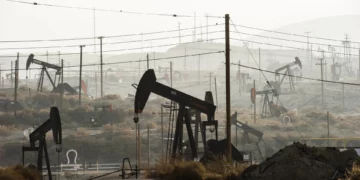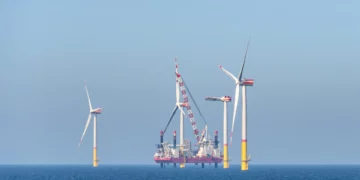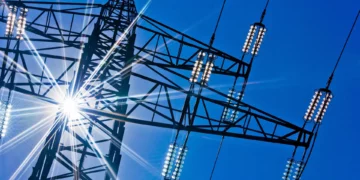The proposed exit of Shell from the Niger Delta raises broader questions about corporate accountability and environmental justice.
Amidst Shell Plc’s contemplation of withdrawing from the Niger Delta, concerns regarding its environmental responsibilities and obligations to mitigate the toxic legacy of pollution have surfaced. A report by the Centre for Research on Multinational Corporations (Somo) emphasises the necessity for Shell to fulfil its obligations before divesting from the delta, stressing the importance of the safe decommissioning of abandoned oil infrastructure and the cleanup of historical pollution.
The report underscores the ongoing challenges posed by historical pollution in the Niger Delta, accusing Shell of attempting to evade responsibility despite its substantial earnings from oil extraction in the region. Labour MP Clive Lewis has raised serious concerns in the House of Commons, emphasising the potential risk of Shell evading its environmental responsibilities upon departure.
One of the key issues highlighted in the report is the lack of transparency surrounding funding for decommissioning. While Nigeria mandates companies to set aside funds for decommissioning, there is no mechanism to verify the adequacy of these funds. Somo researchers found no evidence to confirm that Shell has established funds for the decommissioning of oil mining leases it has sold, raising questions about the company’s commitment to addressing its environmental obligations.
Audrey Gaughran, the executive director of Somo, criticizes Shell for profiting from oil extraction while neglecting the dire consequences of pollution in the Niger Delta. She emphasises that Shell’s departure could have significant implications for the affected communities and underscores the importance of holding the company accountable for its actions.
Gaughran remarked that Shell pulled off the “ultimate Houdini act.” She went on to say that Shell sold off its toxic assets just as the oil industry entered its final phase.
While Shell has attributed much of the oil pollution to theft and interference with pipelines, the report emphasizes that Nigerian law mandates the company to clean up oil spills regardless of their cause. Despite these legal obligations, Shell has failed to adequately address the pollution legacy in the Niger Delta, leaving communities to bear the long-term consequences.
Gaughran insists that Shell must not be allowed to walk away from these “unjust energy transition cases”. “Ensuring that the historical pollution, the lack of funding for safe decommissioning, and poor financial transparency are fully addressed in Nigeria will be an important litmus test for a just energy transition across the world,” said Gaughran.
In response to concerns raised in the House of Commons, Shell emphasizes that onshore divestments are part of a broader reconfiguration of Nigeria’s oil and gas sector, with domestic companies playing an increasingly important role. However, Shell reassures that mandatory submissions to the federal government ensure scrutiny of divestments, subject to meeting all regulatory requirements.
“The reconfiguration of Nigeria’s oil and gas sector involves onshore divestments, which contribute to the country’s aspirations for the sector,” a Shell spokesperson notes. “Mandatory submissions to the federal government allow the regulators to apply scrutiny across a wide range of issues and recommend approval of these divestments, provided they meet all requirements.”
The proposed exit of Shell from the Niger Delta raises broader questions about corporate accountability and environmental justice. Lewis highlights the potential precedent set by Shell’s withdrawal for other British multinationals operating in the global south, emphasizing the need to prevent environmental destruction and ensure accountability for impacted communities.
Shell’s planned withdrawal from the Niger Delta underscores the urgent need for comprehensive measures to address the region’s pollution legacy and safeguard the interests of affected communities. As discussions continue, stakeholders must prioritize environmental responsibility and ensure that Shell fulfils its obligations before divesting from the delta.

















